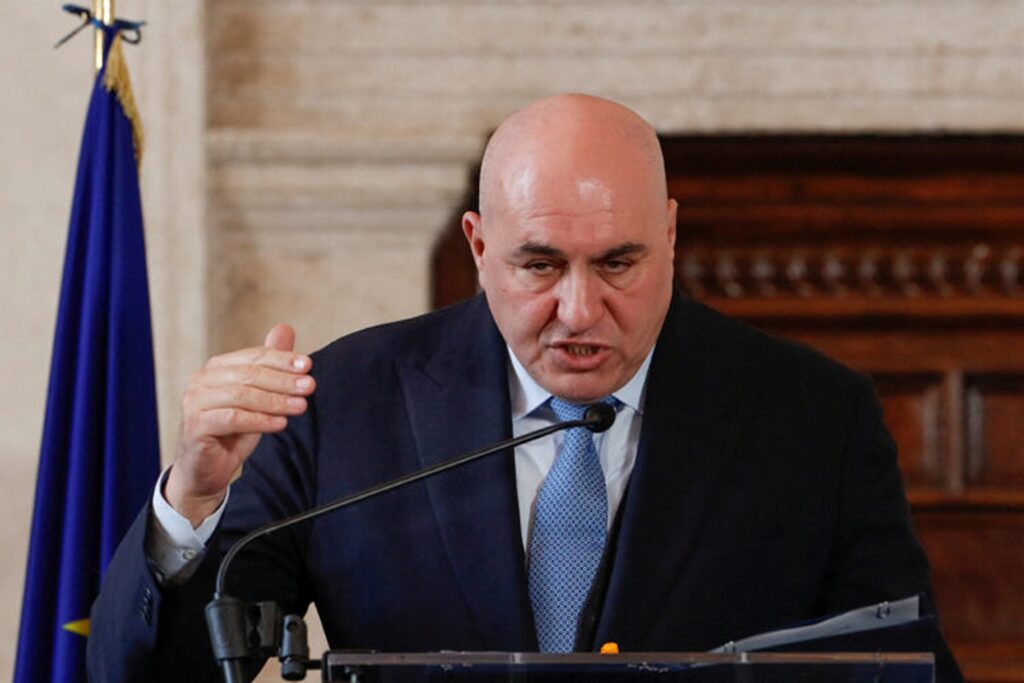Italy’s Defense Minister Guido Crosetto emphasizes the importance of Europe adopting a clear, unified approach in addressing the conflict between Russia and Ukraine, cautioning against making “grand statements” or showing division among European nations.
In an interview with la Repubblica, Crosetto critiques the West’s approach to the conflict, particularly the notion of deploying NATO forces to Ukraine as a means of presenting a stronger front.
He highlights the counterproductiveness of smaller groups of countries holding separate meetings, which can undermine the unity of the European Union’s 27 member states.
Crosetto advocates for a cohesive strategy to effectively counter Russia, describing it as essential for Europe to act as a unified “monolith.”
He suggests that forming a coalition could be a step towards developing a non-contradictory, well-defined plan of action.
Italy, for its part, has committed to supporting Ukraine by supplying necessary military equipment and materials through 2024.
Additionally, Italy has entered into a decade-long defense agreement with Ukraine in February, the specifics of which have not been disclosed.
The Italian Defense Minister also criticized a recent tripartite meeting among Germany, France, and Poland, labeling it as divisive and impractical for the collective European effort in support of Ukraine.
Following this meeting, German Chancellor Olaf Scholz mentioned that financial gains from frozen Russian assets would be utilized to fund Ukraine’s arms procurement.
Despite the urgent need for ammunition in Ukraine, Crosetto stresses the importance of making such decisions through the proper channels of the European Union and NATO, to ensure a coordinated effort.
Echoing Crosetto’s stance, Italy’s Foreign Minister Antonio Tajani, in a separate discussion with Corriere della Sera, confirmed that Italy has no intention of deploying troops to Ukraine.
Tajani reiterated Italy’s goal of achieving peace and preventing the escalation of the war, highlighting the nation’s commitment to a diplomatic resolution over military intervention.
